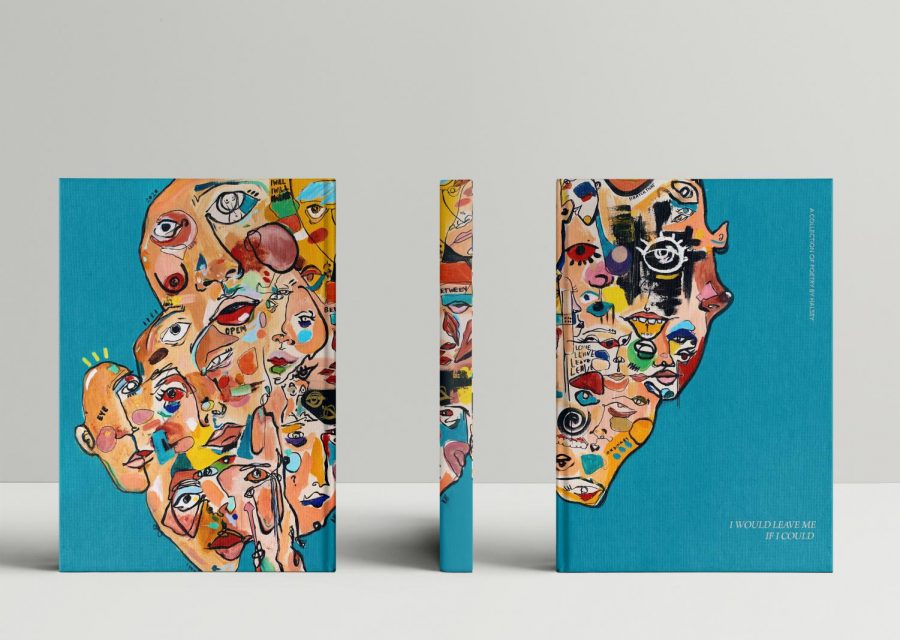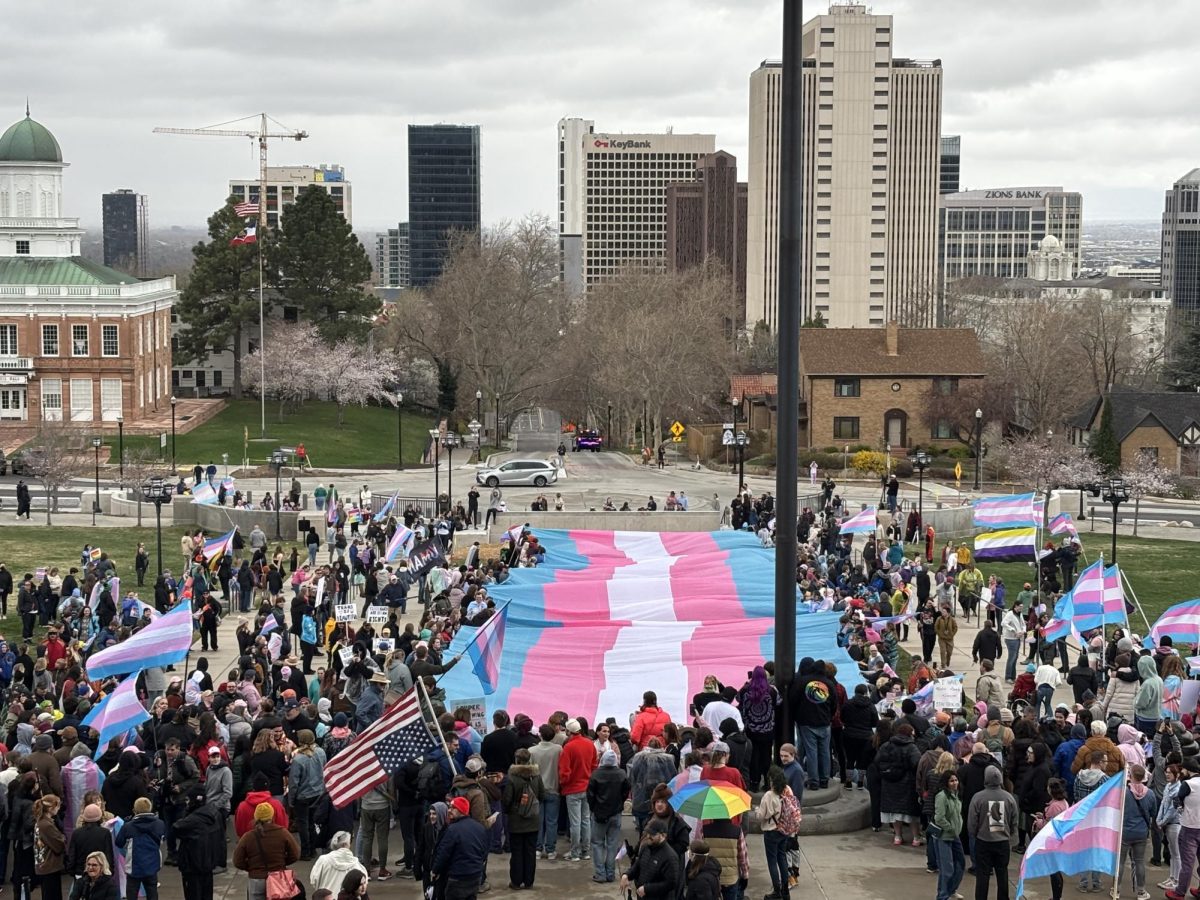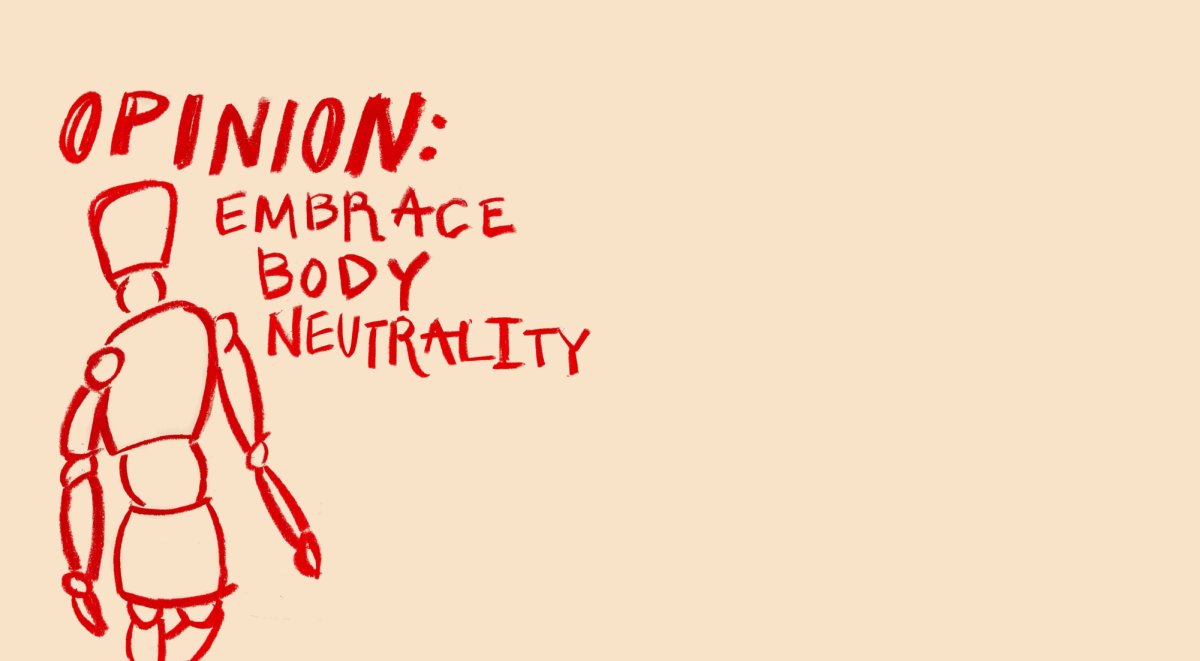Halsey’s ‘I Would Leave Me If I Could’ is Long-Lasting
Hardcover copies of Halsey’s collection of poems “I Would Leave Me If I Could” | (Courtesy of Simon & Schuster).
February 8, 2021
For years, I was a Halsey-hater.
Maybe hate is a strong word. I didn’t love her music, I didn’t despise it. I was indifferent — not changing the station if a song came on, but turning it down, never up. I’m not sure why — maybe it was because everyone seemed to like her, or that everyone didn’t. Her music was too mainstream, too out there, too contrived, or too strange. Regardless, album release after album release I stayed in the dark.
That is, until the beginning of quarantine. With more time on my hands and a need to update my running playlist, I decided to let my walls down, and Ashley Frangipane’s top 40-style music in.
Now, she has comfortable positions in almost all my Spotify playlists, lyrics constantly cycling through my brain, and a spot on my bookshelf.
In her debut poetry collection “I Would Leave Me If I Could,” it seems Halsey experienced the same feelings about herself that I did. Her opening poems, “Introduction,” “Due Date,” and “I Want To Be a Writer!” all explored the same themes of self-doubt, but, even more so, emptiness.
In another early piece, “Summer Fruit,” she describes herself as a vessel for someone else’s pleasure, hosting seeds that eventually blossomed into “a giant ‘you’ plant.” To Halsey, she’s not good or bad, but hollow — a storage site.
Halsey has been public about her life with bipolar disorder, even opening up about naming her most recent album, “Manic,” after the state she wrote it in.
It makes sense, then, that the poem “With Great Power Comes Great Responsibility,” with only two lines (“I am not allowed to want to die anymore. Believe me, I tried”) ushers us into the second act of the collection: self-discovery.
The following poems are incredibly vulnerable, diving into her abusive relationships (“Lighthouse”), scattered memories of sexual assault (“The Painter”), and many, many drug trips (most notably, “Travis”). She questions her sexuality, affirms it, and then questions it again, finds her strength and loses it, falls and stands back up. Halsey’s mix of short poems and long, rhyming narratives read as if set to music. This section of the collection, with its brutal honesty, seems to be an attempt to reconcile with herself and is what ultimately gives the entire work enough weight and depth to carry on to the third act: love.
Just like I found room for her art in my world, Halsey finds room for herself in hers. “My mind is messy but it’s beautiful / like I’m in utero / I don’t say it often, / but I’m proud of the woman that I turned out to be.”
It’s true that her poetry, just like her lyrics, can be a bit stilted. There are stanzas — and a few entire poems — that suffer from the burdens of cliches, weak rhymes and pseudo-introspective musings. These weights, while distracting, don’t strip away the collection’s value. Her poetry drips with sincerity, clamors for validation and begs to be seen, line after line, word after word.
To Halsey, any word has power, because if “you can capture them on a page” you have then captured them in the world. With that, “I Would Leave Me If I Could,” easily achieves what Halsey set out to do: make a mark.
4/5 stars












